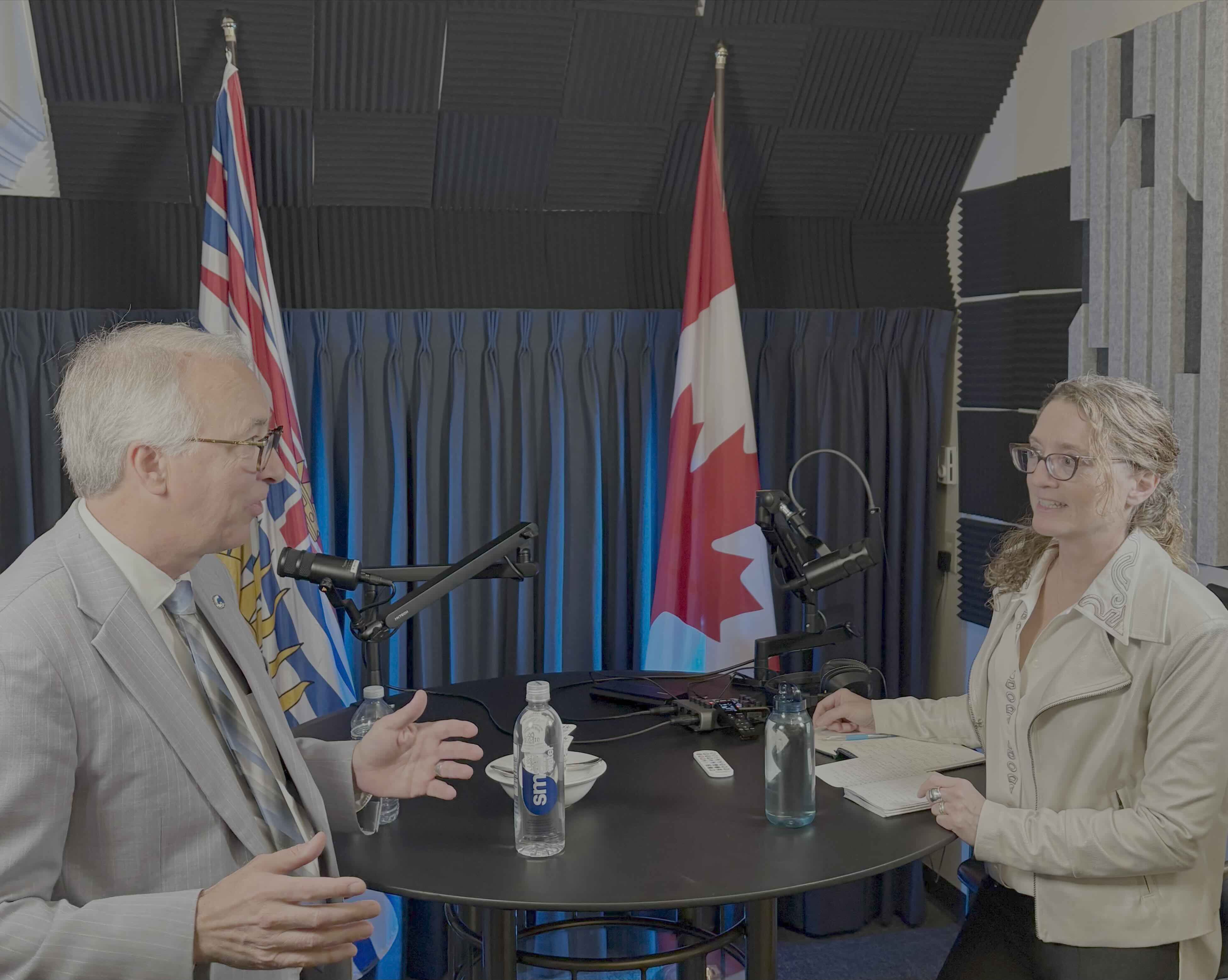Northern Beat News Podcast

Northern Beat News Podcast
Podcast Description
Stories you can trust about BC politics, policies, leadership, and more at www.northernbeat.ca northernbeatnews.substack.com
Podcast Insights
Content Themes
The podcast covers a range of themes including provincial governance, economic development, Indigenous rights, community challenges, and mental health with episodes discussing topics like infrastructure funding agreements, provincial debt, and personal stories from political leaders, exemplified by in-depth interviews with John Rustad and Sean Bujtas.

Stories you can trust about BC politics, policies, leadership, and more at www.northernbeat.ca
“I get if we were 15 points behind the NDP and the NDP were sailing high… [but] we’re 42-44 in the polls, and we’re not doing well enough?”
—John Rustad
If the BC Conservative Party were a ship and John Rustad its captain, in the last couple of years he helped refit a paretic vessel, then took it into battle on the high seas; he weathered storms and won bounty; he made crew walk the plank, while others jumped the rail; he narrowly averted a mutiny, and now despite choppy seas and restless factions still circling the deck, he remains resolute at the helm, eyes fixed on the horizon.
About this tumultuous political odyssey, he appears more sanguine than agitated.
“I believe most things in life, if not all things in life, come and go in waves. And those waves can be nice and smooth and simple, or those waves can be very sharp and condensed and have huge peaks and valleys.”
Taking over leadership and re-building a party from zero elected MLAs in spring 2023, to securing Official Opposition in October 2024 “was an unbelievable climb,” he said, with an inevitable downside – people’s expectations.
“Everybody saw themselves differently in terms of what the Conservative Party should be… but it’s impossible to meet perfection.”
Aboriginal title, reconciliation agreements and private property
It is a relished pastime of the BC NDP government premier and his ministers to hold Rustad’s previous time in BC Liberal cabinet as an indictment of the whole Opposition bench. Everything the NDP perceive as corrupt, heartless or unwise done by previous Liberal governments is laid at Rustad’s feet.
But as the former Indigenous Relations and Reconciliation minister for four years (along with Forests for a time), who served directly prior to the BC NDP forming government in 2017, his experience has perhaps never been more relevant.
Because no one else in the legislature has spent four years in that chair. Agree or disagree with his opinions and approach to reconciliation, there’s no doubt he knows the file.
And these days, no political topic is hotter in B.C. than the government’s reconciliation agenda, with no tasks more contentious, complex and imperative to resolve than how to both justly recognize Aboriginal title and irrevocably protect private property rights.
John Rustad joined me in the press gallery recording studio this week to discuss all this and more.
Hope you enjoy the conversation and let us know what you think!
Fran
Podcast producer: Rob Shaw
Feedback: [email protected]
Get full access to Northern Beat News at northernbeatnews.substack.com/subscribe

Disclaimer
This podcast’s information is provided for general reference and was obtained from publicly accessible sources. The Podcast Collaborative neither produces nor verifies the content, accuracy, or suitability of this podcast. Views and opinions belong solely to the podcast creators and guests.
For a complete disclaimer, please see our Full Disclaimer on the archive page. The Podcast Collaborative bears no responsibility for the podcast’s themes, language, or overall content. Listener discretion is advised. Read our Terms of Use and Privacy Policy for more details.